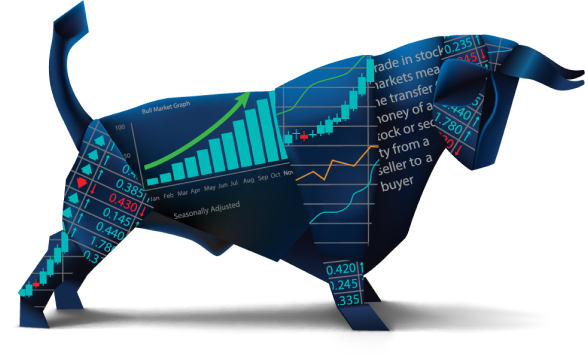
WHAT IS A MARKET INDEX?
A market index is a theoretical portfolio that reflects a specific section of the financial market. Its value is determined by the prices of the assets it tracks. Different indexes use various weighting methods, such as market-cap weighting, revenue-weighting, float-weighting, and fundamental-weighting. Weighting helps adjust the influence of each component within the index.
Investors rely on various market indexes to monitor market trends. In the U.S. stock market, the most widely followed indexes include the Dow Jones Industrial Average (DJIA), the S&P 500, and the Nasdaq Composite. For bonds, Bloomberg provides key indexes, with the Bloomberg U.S. Aggregate Bond Index being a major benchmark for U.S. bonds. While investors can’t directly invest in an index, these indexes serve as important benchmarks and are used to create index-based investment funds.
- Market indexes offer a broad snapshot of investment holdings, reflecting the performance of a specific market segment.
- The methods used to create indexes differ, but most rely on weighted average calculations to determine their values.
- Indexes serve as key benchmarks for measuring market segment performance and tracking overall market movements.
- Investors rely on indexes as a foundation for building portfolios or engaging in passive index investing.
KEY TAKEAWAYS
// Understanding a Market Index
A market index tracks the value of a portfolio that reflects certain market characteristics. Each index follows a unique methodology, determined and maintained by its provider, often using price or market cap weighting. Investors widely use indexes to monitor financial markets and manage portfolios. They play a crucial role in investment management, serving as performance benchmarks and forming the foundation for index-based funds.
// Market Index Methodologies
Each index follows its own formula for determining its value, with most relying on weighted average calculations. In price-weighted indexes, higher-priced holdings have a greater influence on the index’s movement. In contrast, market capitalization-weighted indexes are more affected by changes in the largest companies. The impact varies based on the specific weighting method used.
INDICES AVAILABLE ON OUR PLATFORM
Name
Symbol
Lot Size
Price
Change
Load...
Load...
Load...
Load...
Load....